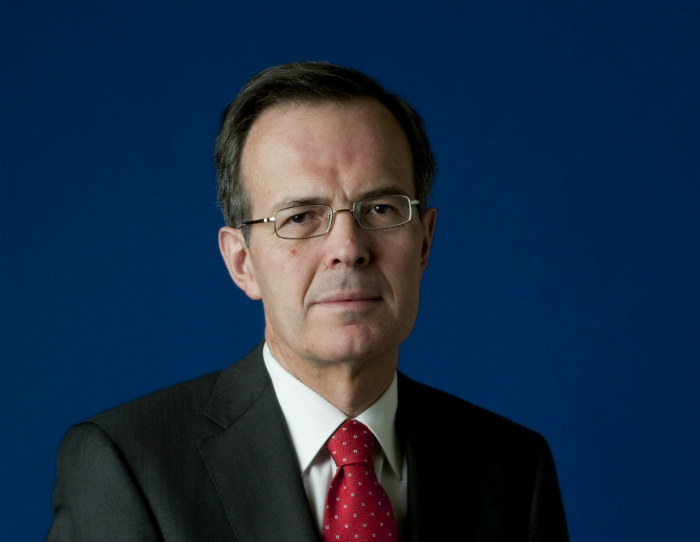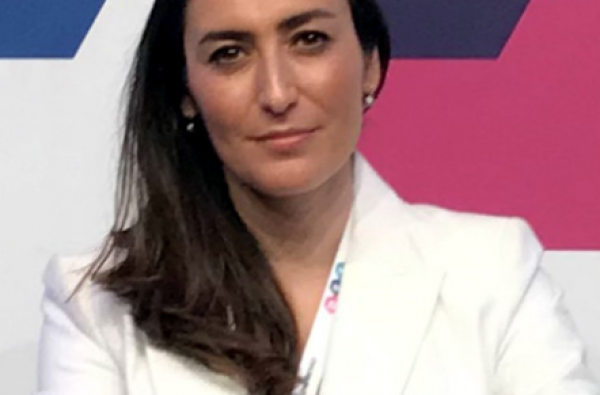The CEO of Cepsa, Pedro Miró, explains how they have managed to save 10 million euros a year thanks to IA. Their digital transformation strategy is based on three axes: immersion in new technologies, data exploitation and the internal development of workers.
When asked about the importance of sustainability for Spain's oldest private oil company, Cepsa's vice-president and CEO, Pedro Miró (Manresa, 1953), stands up determinedly and points to five words written on a wall. Security, solidarity, leadership, continuous improvement and, yes, sustainability. Five key values for a company that has tackled the digital transformation by making the most of its data, betting on people and technology, and maintaining continuous learning. Among the successes of this strategy, Miró highlights "a saving of around 10 million euros a year" through a reduction in costs obtained through algorithmic optimisation.
A chemist by training, Miró began as a trainee at Cepsa in 1976 and, during these more than 40 years, has developed his career in various areas of the company. From his vast experience and desire to continue learning comes an enthusiasm that wants to spread throughout the company, and seeks to implement changes in a sector that finds itself in a difficult scenario before the challenges of decarbonization.
One of the 10 Emerging Technologies that MIT Technology Review has selected in 2018 is artificial intelligence (AI) services in the cloud, platforms that could take AI to all corners of the world. What do you think of this trend?
For me it is something that has stopped being a trend and has become a reality. The use of AI opens up new opportunities for companies. But it's not just about this technology: our sector is already advancing in what they call the fourth industrial revolution or industry 4.0, where digital transformation plans are defined to culturally change and empower organizations.
At Cepsa we have a strategic plan for 2030 in which this digital transformation is an essential element, and with which we seek to make the most of our potential thanks to new technologies and the new training of our professionals. Our objective is to become a company that bases all its decisions on data. Precisely, most of the algorithms that will allow it will be based on IA.
"With the right information and the right frequency, practically any phenomenon can be predicted.
How did they realise they had to make more of their data?
We realised that there were two relevant facts. First of all, we have more and more quality data: 500,000 people visit our service stations every day. Some not only refuel, but also buy bars of bread, strawberries, antifreeze or barbecue wood. We are an integrated company that goes from the well to the final consumer, so all our processes, plants and stations give us a lot of information. On the other hand, as we did not agree on who should exploit these data, we created a specific digital transformation group and we organized ourselves so that each area of Cepsa would have a project of this type.
What benefits do both your company and your customers experience as a result of this?
The use of data is helping us to improve decision-making, to do so in shorter periods and with less risk. This translates into better products and services that make us have more customers, which in turn gives us more information. It's a virtuous circle of improvement focused on our users.
And how is this data revolution moving into your industry?
With the right information and the right frequency, virtually any phenomenon can be predicted. In our industry, almost any decision can be made by algorithms and this applies to all parts of the company. For example, one of the chemicals we manufacture most is phenol, which is used to make aspirin and polycarbonates. To optimize its production, we used to study the reagents and the product, but we never managed to finish improving it. Now, with the algorithms we can reduce variable costs by 2%, which translates into savings of around 10 million euros a year.

How important is this chemical area in your company?
Although we are a relatively small company within the energy sector, we are a large chemical company and the world's leading producer of raw materials for detergents. Every fifth piece of clothing worn by anyone in the world has been washed with a detergent produced with one of our active ingredients. In Brazil we have 95 % of the market, in Canada 85 %, in the USA 60 % and in Europe 40 %. We try to add value to our barrel of oil instead of burning it in an engine.
We want to be close to the end consumer and, indeed, if there are two issues that have influenced increasing life expectancy they are antibiotics and fuels. Today they are marvelous and if they have improved so much it has been thanks to chemistry.
It is clear that the sector is changing. What is the role of the CEO in the face of all these innovation challenges?
His role should be that of non-working supervisor. Leaders must understand that this process requires continuous learning. Knowing everything is illusory, that's why I surround myself with experts and I keep coming back very early to work because every morning I study a little. I think one is obliged to follow small discoveries.
Managers must also understand that digital transformation will position their companies on the path to excellence. It's an issue you can't fail to address because you can be left out of the game without realizing it. They must also assume that time is a new dimension of value and that agility is not contrary to compliance.
How did you deal with these changes from Cepsa?
Innovation has been present in our company since its origins. Cepsa had the need to change its headquarters in 2013 and we took advantage of it to promote a change in culture, ways of working, spaces and processes. This transformation process must always be people-centered. For us, we are surrounded by magnificent partners accustomed to these processes. If it is key to get your travel companions right, it is more important to listen to them, even if your experience tells you otherwise.
"In order to change and innovate, it is necessary to enthuse people and for all of us to come here willingly. Cepsa is a club of enthusiasts.
How do you address the need for new digital employees resulting from this transformation?
We are reviewing pay policies for new digital jobs. However, it is not just a question of hiring data scientists and engineers, the challenge is to train our staff in the use of all these technologies so that they can be better professionals and provide more value. We look for few people, because we believe a lot in internal development.
How does Cepsa prepare for the future now?
We continue researching and working. I started in a laboratory, for me innovating was making research profitable, and it continues to be so. Now we have started a plant in Indonesia where we make a product from coconut, without oil, for liquid detergents. These small innovations catch on overtime. We have to reinvent ourselves in our sector. If we have to decarbonise completely by 2050, are we in the ICU? Our obligation is to apply our experience in other projects and places. What's the difference between installing mills or installing changers in a refinery? None at all. But in order to change and innovate it is necessary to enthuse people and that we all come here willingly. Cepsa is a club of enthusiasts.
By Patricia R. Guevara



